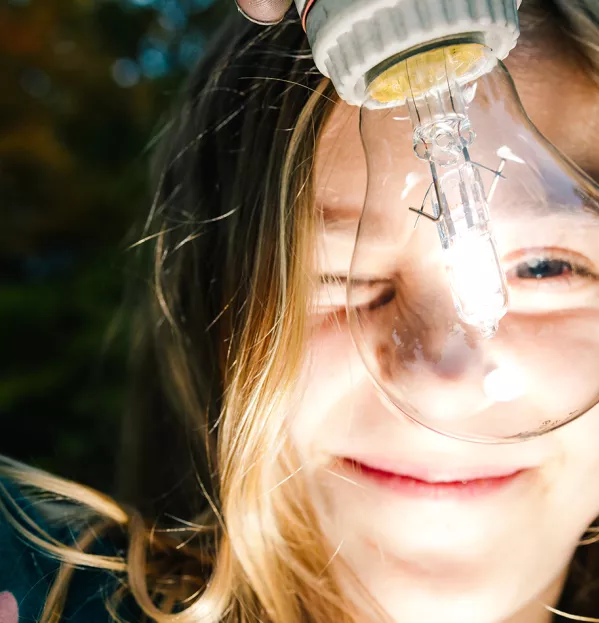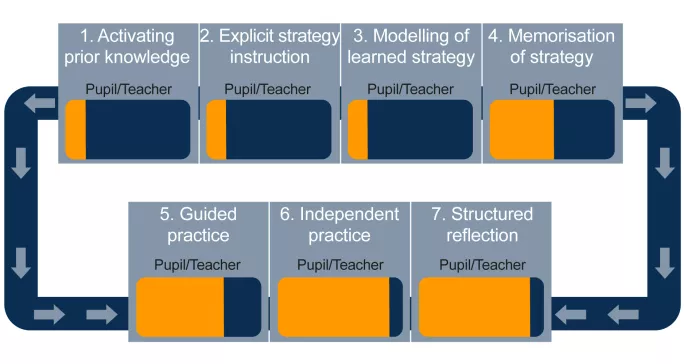
- Home
- Teaching & Learning
- Primary
- How to teach primary science, according to research
How to teach primary science, according to research

Primary science is a core subject in the primary national curriculum - and for good reason. Effective science teaching develops children’s curiosity and understanding about the world around them, and builds foundational knowledge and skills applicable in numerous other contexts throughout school and beyond.
For some pupils, engagement with primary science begins a trajectory towards an eventual career in science, technology, engineering or maths.
It makes sense, then, to prioritise primary science teaching in the name of equal access to opportunity and social mobility.
But research shows that there’s a stubborn gap in attainment between pupils from socioeconomically disadvantaged backgrounds and their peers. For these children, the likelihood of achieving an equivalent level of attainment in science or progressing to study science at a higher level in the future is much lower (Nunes et al, 2017).
At the Education Endowment Foundation (EEF), we’re committed to supporting teachers and school leaders to implement changes to practice that make a real difference to disadvantaged pupils’ progress.
That’s why we’ve published a brand new guidance report, released today, which distils the findings from the best available international research into six actionable recommendations that all staff responsible for science teaching can put in place to improve their practice (Bennett et al, 2023).
How to teach primary science
Taken together, the recommendations have the potential to boost progress for all children, particularly those from disadvantaged backgrounds.
1. Develop pupils’ scientific vocabulary
The first recommendation in the report encourages primary science teachers to identify important scientific vocabulary, explicitly teach it and create opportunities to engage with these keywords repeatedly over time.
Terms that have an everyday meaning as well as a scientific meaning can prove particularly challenging for pupils.
Take, for example, the word “pole”: depending on context, it could refer to a long, rounded piece of wood or metal; or in a science context, the area at either end of a magnet where the magnetic field is strongest - and it’s important to support children to understand the difference.
The guidance therefore recommends that educators put particular emphasis on teaching these words with multiple meanings, as well as those that are topic-specific or useful for working scientifically.
2. Encourage pupils to explain their thinking, whether verbally or in written form
The second recommendation says that - whether through high-quality talk or written tasks - supporting pupils to explain their thinking helps them to recall, organise and express their ideas, refine their understanding and think scientifically.
Strategies such as setting collaborative and cooperative learning tasks, engaging in structured dialogue, and proactively cultivating reasoning and justification can all help to put this into practice in the classroom.
3. Guide pupils to work scientifically
Studies suggest that explicitly teaching the knowledge and skills required to work scientifically, guiding pupils to apply this in practice, as well as providing opportunities for discussion and reflection, can all support scientific development.
Our seven-step model, below, is designed to help teachers support their pupils to become independent scientists, gradually reducing teacher input over time.

4. Relate new learning to relevant, real-world contexts
Relating learning to relevant, real-world contexts can help pupils develop an understanding of science, demonstrate its purpose and highlight its relevance by connecting it to pupils’ experiences.
In order for this to be effective, the contexts teachers choose must resonate with all pupils, so that everyone can actively engage. This is particularly important in removing barriers to participation and understanding for socioeconomically disadvantaged and/or lower-attaining pupils.
5. Use assessment to support learning and responsive teaching
Assessing learning before a new topic to inform planning (diagnostic assessment) and during teaching (formative assessment) is crucial for high-quality teaching in any subject.
A key programme mentioned within this recommendation is the Teacher Assessment in Primary Science programme, which involves strategies such as pre-planning learning criteria within and across years to better evaluate pupils’ overall understanding at the end of a topic, term or year. Judgements are informed by formative assessment, collected over time and discussed with colleagues to support consistency.
6. Strengthen science teaching through effective professional development as part of an implementation process
Professional development needs to be carefully implemented if we want it to impact practice. New approaches or pedagogy should be introduced as part of a wider process, involving gathering information to identify professional development needs and ongoing monitoring.
High-quality primary science teaching is a huge part of giving every child, regardless of their background, the best possible start in life and keeping options open in their futures.
It’s our hope that this new guidance brings some clarity around how to make meaningful changes to classroom practice, and empowers teachers to go ever further in supporting children’s learning and future life outcomes.
Professor Becky Francis is chief executive of the Education Endowment Foundation
You need a Tes subscription to read this article
Subscribe now to read this article and get other subscriber-only content:
- Unlimited access to all Tes magazine content
- Exclusive subscriber-only stories
- Award-winning email newsletters
- Unlimited access to all Tes magazine content
- Exclusive subscriber-only stories
- Award-winning email newsletters
You need a subscription to read this article
Subscribe now to read this article and get other subscriber-only content, including:
- Unlimited access to all Tes magazine content
- Exclusive subscriber-only stories
- Award-winning email newsletters
- Unlimited access to all Tes magazine content
- Exclusive subscriber-only stories
- Award-winning email newsletters



